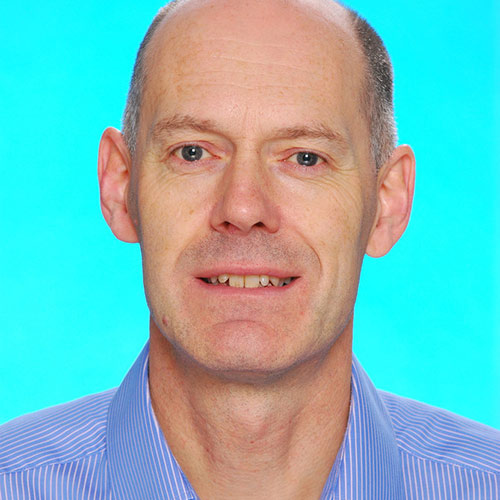Summary
I have over 30 years research experience of various aspects of the geochemistry of fluid-rock interactions. This includes extensive experience designing, constructing, operating and interpreting experimental investigations into fluid-rock interactions over a wide range of temperatures and pressures, and in the management of the work programmes. Most of my work has strong linkages to ‘energy’ issues, and in particular securing sources of it and disposing of waste products from it. I am manager of the BGS Hydrates and Ices Laboratory.My interest in the geochemistry of gas-water-rock reaction processes is supported through a combination of lab experiments, observation of natural analogues, and computer modelling studies. I have a particular interest in non-equilibrium systems where reaction kinetics plays an important role.I am also interested in ‘environmental gas monitoring’, and the migration of gases from the shallow geosphere to the atmosphere. this involves sampling of boreholes, soil gas monitoring, and UAV-based gas detection systems
Christopher Rochelle’s Biography
- 1986 –1990 : PhD, Earth Sciences, Leeds University, ‘Fluid-rock interaction in the Miravalles Geothermal Field, Costa Rica. Mineralogical and experimental studies’
- 1983 –1986 : MSc, Chemistry with Geochemistry, Leicester University
Research interests
- Reactions under geothermal conditions: High temperature geothermal fields offer renewable energy to many parts of the world. Understanding high temperature geochemical reactions is crucial to geothermal exploitation as these control rock permeability, and hence fluid production rates. They also control issues in engineered infrastructure, such as scaling within production pipes. I use the BGS Hydrothermal Laboratory to study these high temperature reaction processes. I also sample rocks, waters and gases form active geothermal areas to better understand how fluid-rock reactions impact fluid flow pathways via permeability changes.An exciting new development is ‘supercritical geothermal energy’, which may be able to deliver 10 times the energy per well compared to conventional geothermal wells. However, geochemical reactions at these extreme conditions (>374°C, >220 bar) are poorly understood and require further study.
- Gas hydrates: I am interested in the types and morphologies of sediment-hosted hydrates, their relationships with sediments and porewater, and their contribution to bulk sediment properties. Also the mechanisms by which they breakdown, and the impact of hydrate breakdown on sediment strength.
- CO2 storage: The underground storage of CO2 is seen as a possible way to limit emissions of anthropogenic CO2 to the atmosphere whilst we develop new, non-fossil fuel ways to generate the large quantities of energy we need for our modern societies.I study the geochemical processes resulting from storing the CO2 deep underground, though a combination of elevated pressure/temperature laboratory experiments, natural analogues, and predictive modelling. At storage depths (>37°C, >80 bar), the CO2is a supercritical fluid, and dissolves in water to produce a mildly-acidic water that can react with rocks, or borehole infrastructure. These reactions initiate dissolution and precipitation and can slowly produce new carbonate minerals that can effectively trap the CO2 for geological timescales.
- Cement and alkaline fluids: Cement is crucial to both; sealing boreholes (e.g. above underground stores of CO2, and maintaining alkaline conditions within some designs of radioactive waste repositories. It is important therefore that we understand how cements behave in the subsurface, and how their alkaline porefluids impact the surrounding rocks. I use information from laboratory experiments, natural analogues, and predictive modelling to study the mechanisms of reaction of highly alkaline fluids with a range of rock types. An important issue is to understand dissolution/precipitation reactions that increase or decrease porosity/permeability, and hence impact fluid flow.I also study the impact of CO2 on cement, including; the mechanisms of cement alteration during carbonation processes, its impact on cement microstructure, and the implications this has on cement porosity/permeability.
- Environmental gas monitoring: This is a vital tool to demonstrate site containment, inform regulators, and allay public concerns. This is particularly important above sites of CO2 or methane storage, and also close to shale gas operations. However, it also plays an important role in monitoring other systems, such as volcanoes, permafrost, wetlands, and landfill sites. My specific interests in this area are to develop new and innovative sensors and methods of sensor deployment, with a view to monitoring sites in as effective way as possible within reasonable timescales


